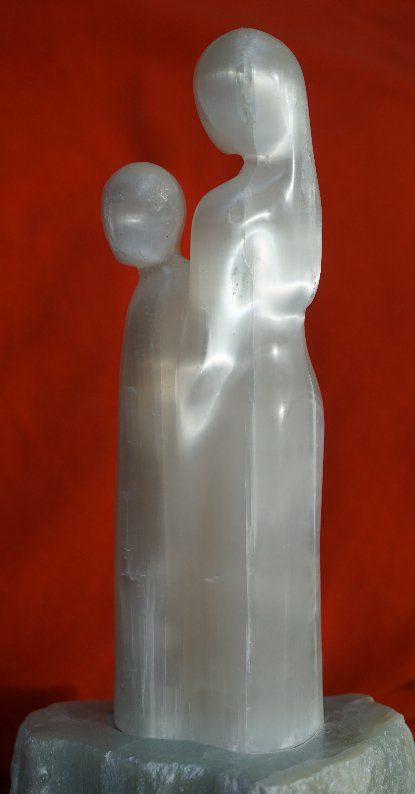
KnowledgeBureau ter Meulen

Press Release of the Royal Netherlands Academy of Arts and Sciences (KNAW), October 19th 2022:
De la Court Prize 2022 for Gera ter Meulen. A crowning achievement for unique research on adoption and foster care
De la Court Prize
The De la Court Prize recognises individuals who have carried out exceptional scientific work in the field of social sciences or humanities unpaid and independently, outside the appropriate academic bodies. Gera ter Meulen receives the De la Court Prize 2022 for her research on adoption and foster care. She set up her own scientific knowledge bureau, providing a clever example of how an independent researcher can operate, according to the jury. The award rewards unpaid and independent research outside established academic institutions.
Scientifically sound and accessible information on adoption and foster care. That is the common thread running through Gera ter Meulen's research. Thanks to her research, this information is available for politics, policy and practice.
About Gera ter Meulen
Gera ter Meulen founded KennisBureau ter Meulen in 2017. Before that, Ter Meulen was a researcher and coordinator of the ADOC (Adoption Triangle Research Centre) for many years and also worked in practice as a policymaker. Her bureau makes scientific knowledge on foster care, adoption and residential care accessible. With her Knowledge Bureau, Gera ter Meulen took over the valorisation of knowledge and doing research from the ADOC and still continues this.
Ter Meulen is a social entrepreneur and does much of her work unpaid. She maintains a database of scientific articles and a website on residential care, foster care and adoption, as well as writing knowledge flashes, blogs, scientific articles and policy responses.
Partly because of her connection between science and practice, Ter Meulen's contributions are taken seriously. For instance, she informed MPs and ministers about gaps in the Joustra Committee report on inter-country adoption. Ter Meulen provided insight into what science knows about inter-country adoption. She advocated for a scientific section within the Expertise Centre for Adoption and the establishment of a chair on adoption at a University.
De la Court Award ceremony
The De la Court Award was presented on 21 November 2022.
Some publications in English
Overview of scientific publications on relinquishment and adoption
In response to the Dutch investigation on abuses in intercountry adoption in the past, the Minister promised to establish an Adoption Expertise Center (INEA). One of the objectives was that INEA would combine, develop and open up knowledge about intercountry adoption and develop knowledge about issues not widely researched but important for adoptees. Therefore I made an inventory of peer-reviewed scientific publications (2009 - July 2022) on relinquishment and adoption from the ADOC/Kbtermeulen database, determining the main themes researched and themes hardly researched, and changes in topics in time. Access to the publication
Adoptees feelings about relinquishment, adoption and satisfaction with life
Intercountry adoption evokes both positive and negative reactions, and the debate extends deep into policy-making. Relinquishment and adoption are profound interventions in people’s lives. Media coverage often predominantly highlights negative stories about adoption. But does this image reflect how most of the 40,000 intercountry adoptees in the Netherlands actually feel about their adoption? To gain more clarity on this question, a survey study was conducted in 2016, exploring the satisfaction of a large and diverse group of intercountry adoptees in the Netherlands.
Thanks to the collaboration of adoption agencies, adoptive parents, and adoptee organizations, a varied group of adoptees was able to have their voices heard: adoptees critical of adoption, those who view it positively, and many who are usually absent from media discussions. The findings of this study have now been published in a scientific article in the journal Adoption and Fostering.
Satisfied with their lives
A large group of 1,155 intercountry adoptees — adopted between 1961 and 1998 from 32 different countries — responded to the survey. And what did it show? Despite often difficult beginnings, the vast majority of adult adoptees were able to build lives they were satisfied with. In fact, they reported being slightly more satisfied with their lives than the average Dutch population.
Adoption and relinquishment
The majority of adoptees also expressed positive feelings about their adoption and being relinquished. Over 90 percent stated that they rarely or never experienced negative emotions about having been adopted or given up for adoption. Eighty percent reported often to always feeling positive about their adoption. Their feelings about being relinquished were more ambivalent. One adoptee wrote:
"I believe that being adopted is the best bandage for the life-sized wound that being relinquished has left in my life."
Adoptees' feelings about their adoption were closely linked to their overall life satisfaction: on average, adoptees satisfied with their adoption were also satisfied with their lives.
The effect of time
When preparing the questionnaires, adoptee organizations emphasized that their members often changed their views on adoption as they moved through different life stages. The study confirmed this: half of the adult adoptees indicated that their perception of their adoption had changed over time. For the vast majority, positive emotions became stronger, while negative feelings diminished.
Proper care
In contrast, it turned out that the oldest adoptees were the least satisfied with their adoption and relinquishment experiences. This discrepancy is likely due to the circumstances surrounding adoptions in an era when little was known about adoption’s psychological and social impact. At the time, there was no proper regulation for intercountry adoptions, limited guidance for adoptive parents, and hardly any specialized aftercare services. Based on the results of this study, the authors therefore emphasize the importance of good regulation, thorough preparation for adoptive families, and specialized Post Adoption Services.
Most relevant publications
Here is an overview of the most relevant publications I have written. When the publications are freely available, you can open them via the publication link. Some of the publications in English, when they are in Dutch, this is indicated, but can be translated with currently available translation programmes.
